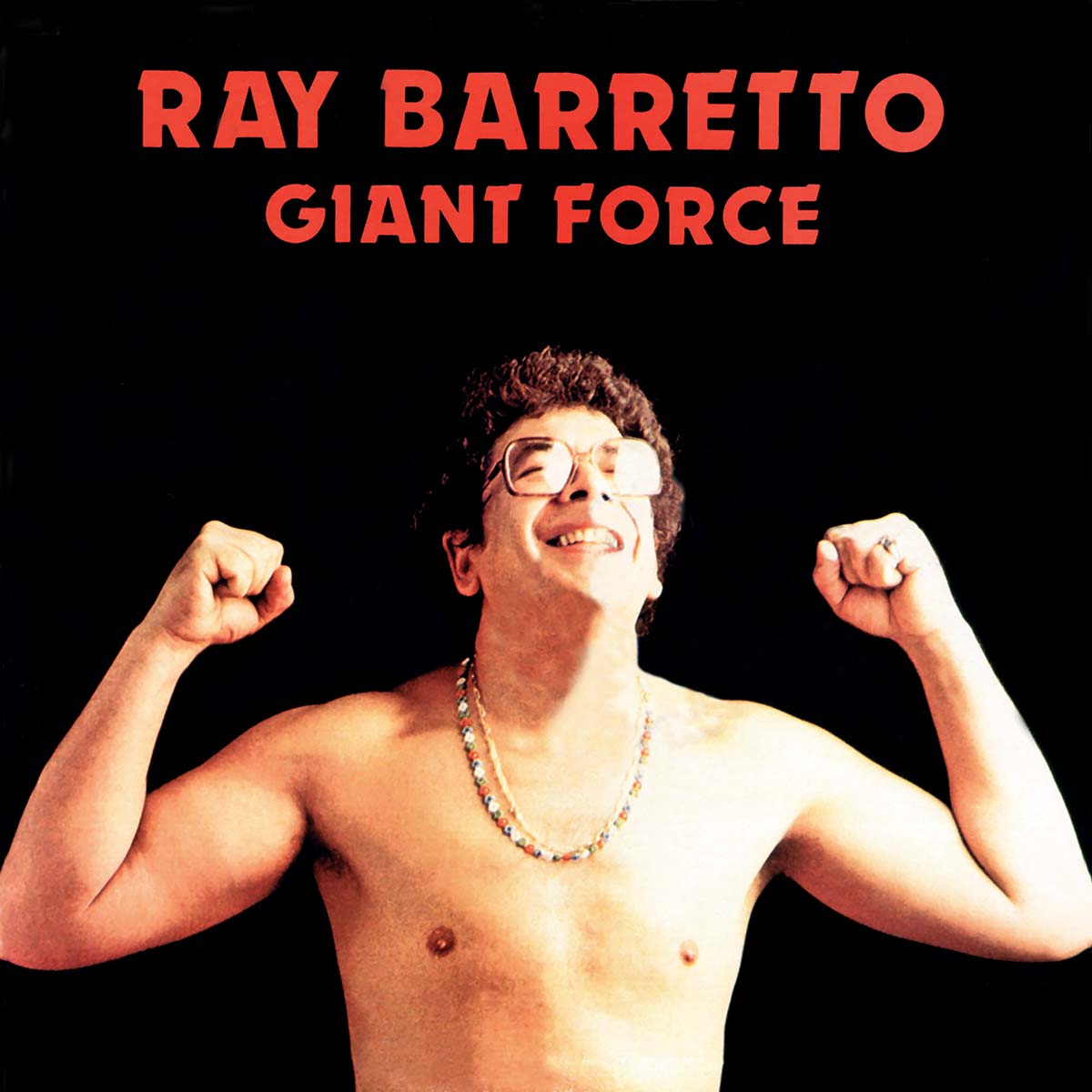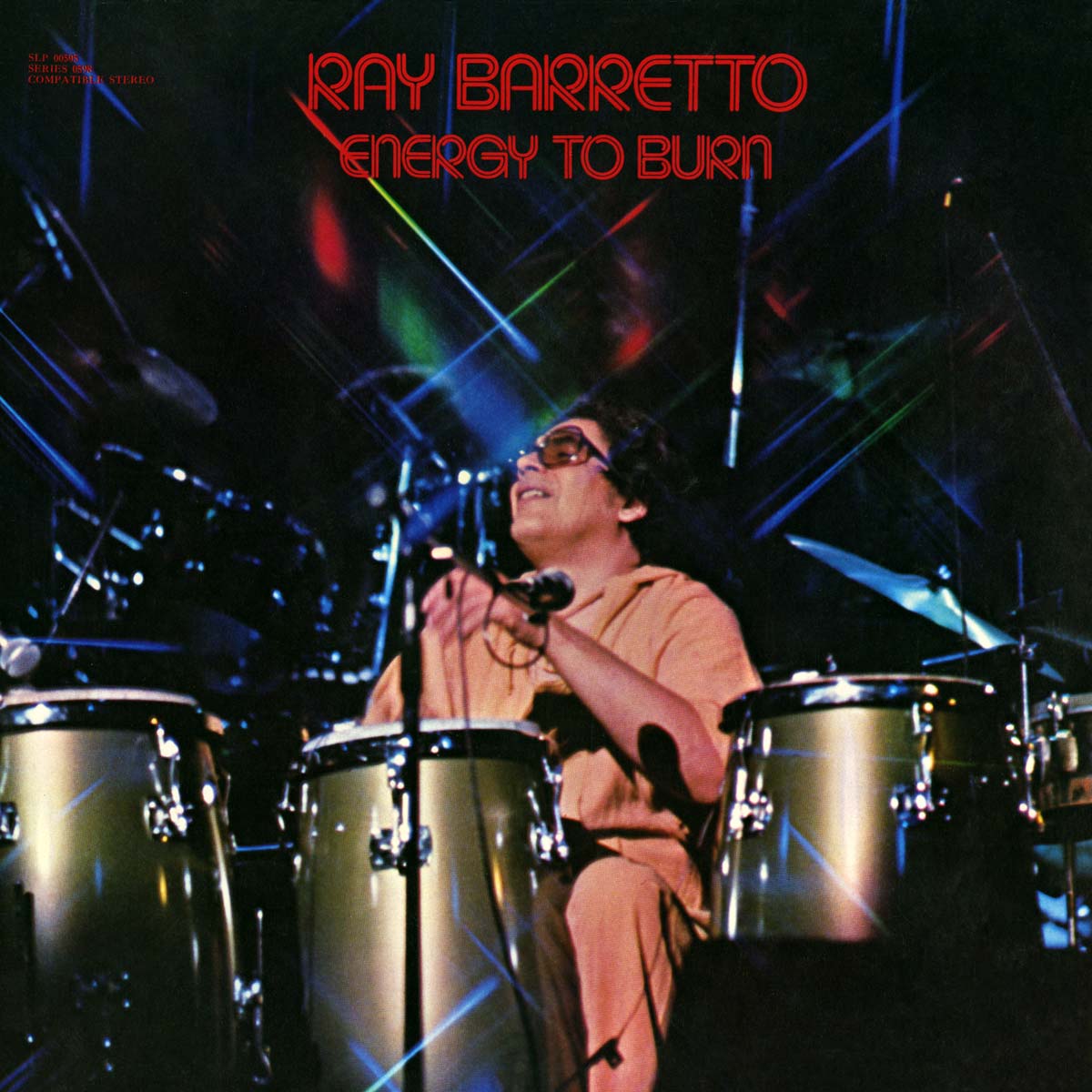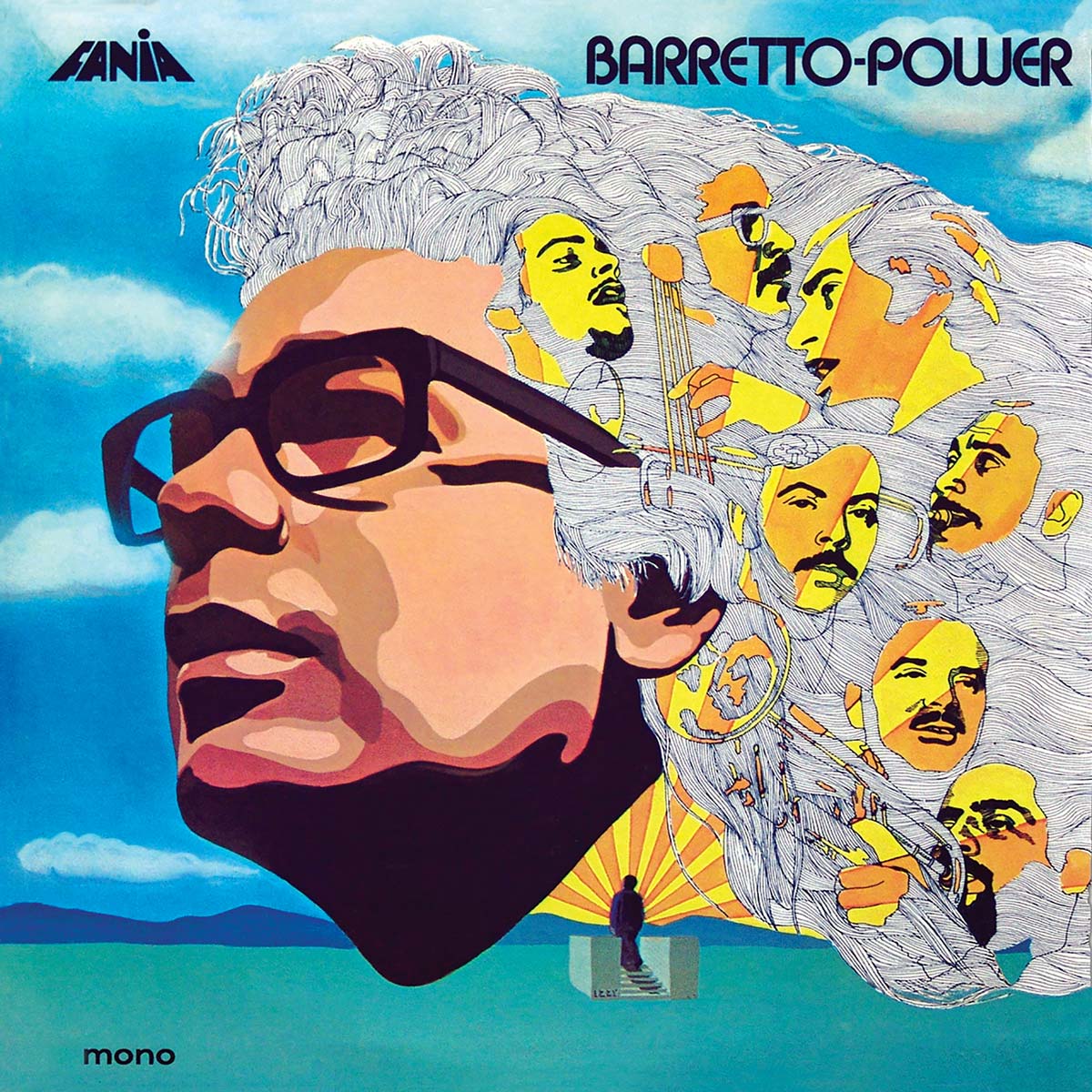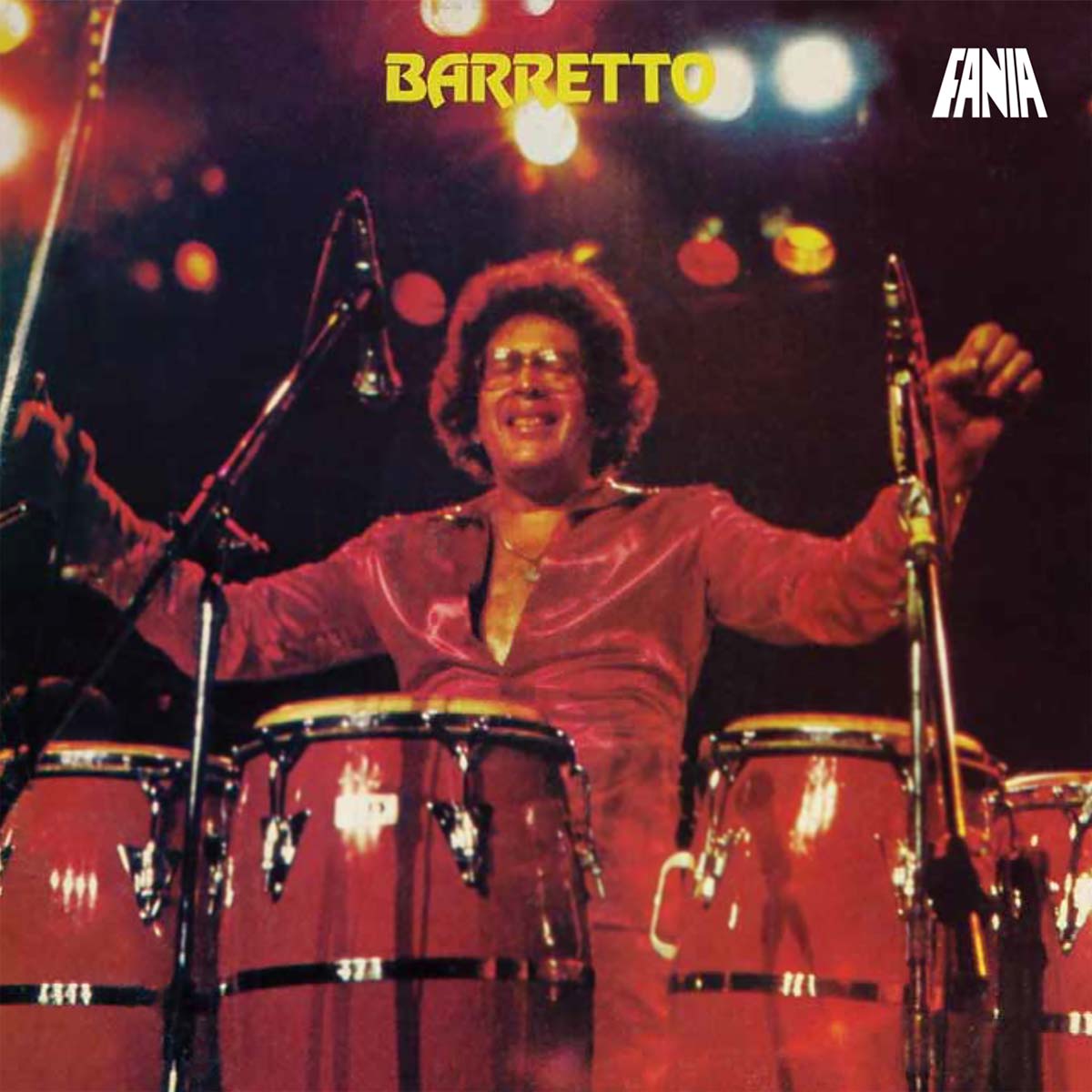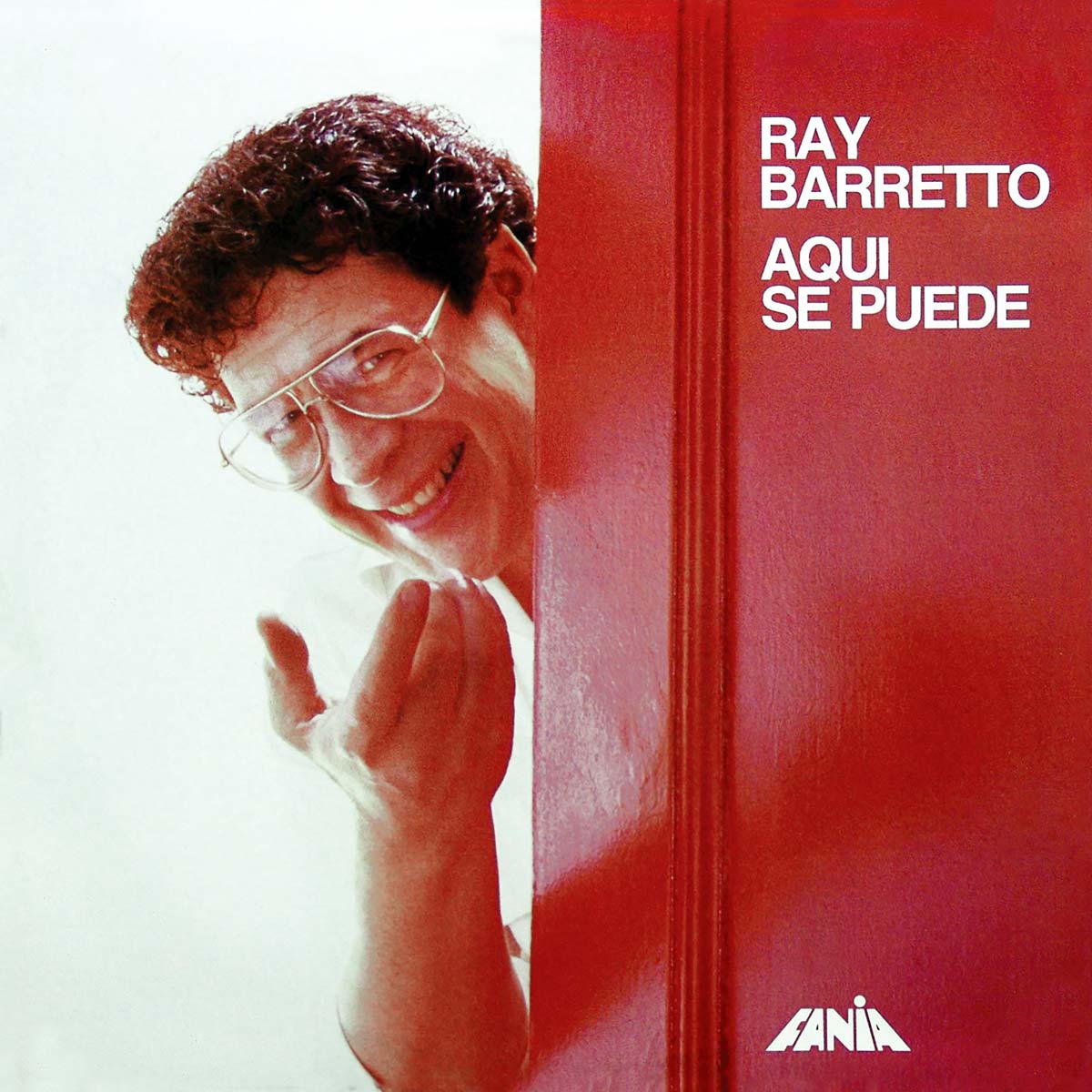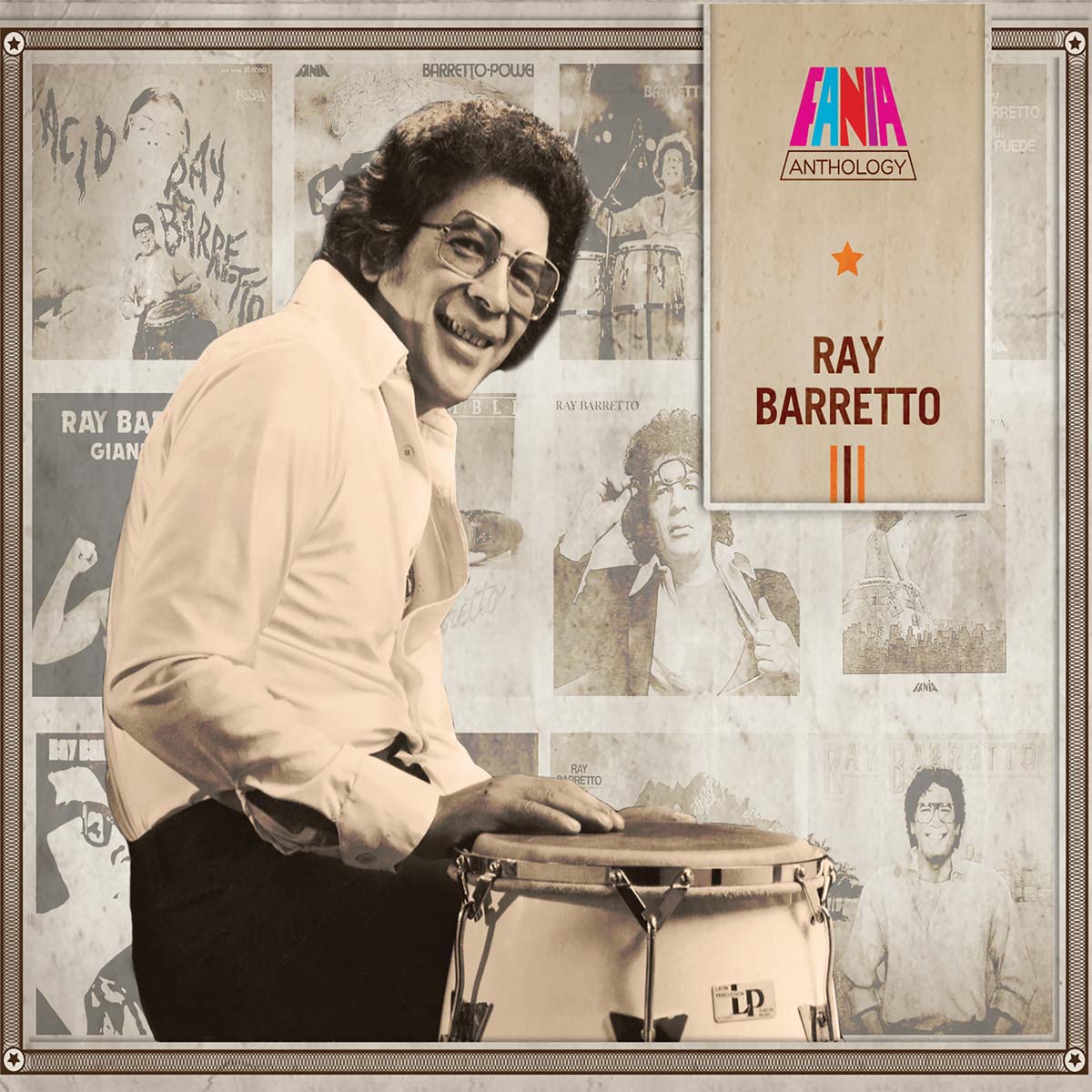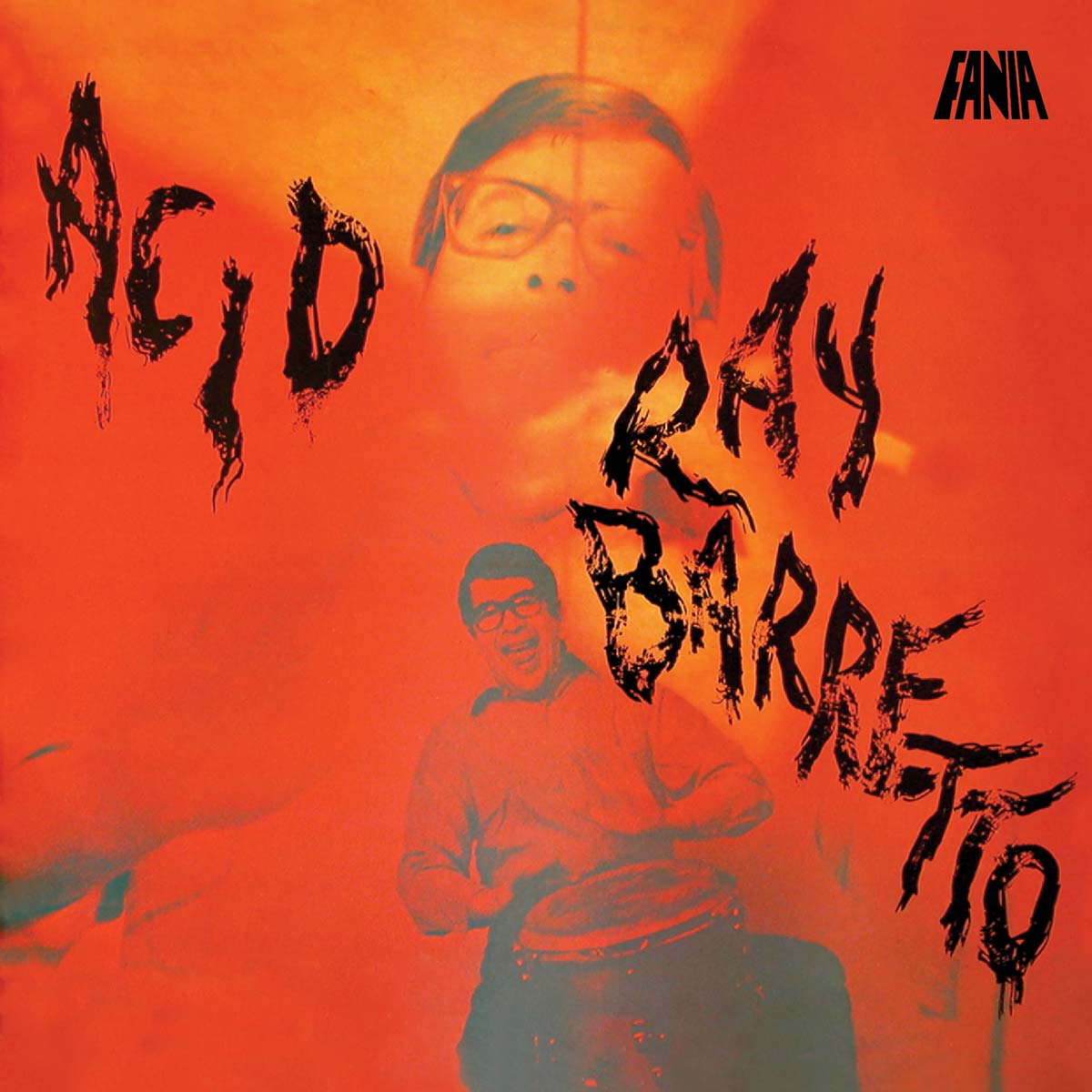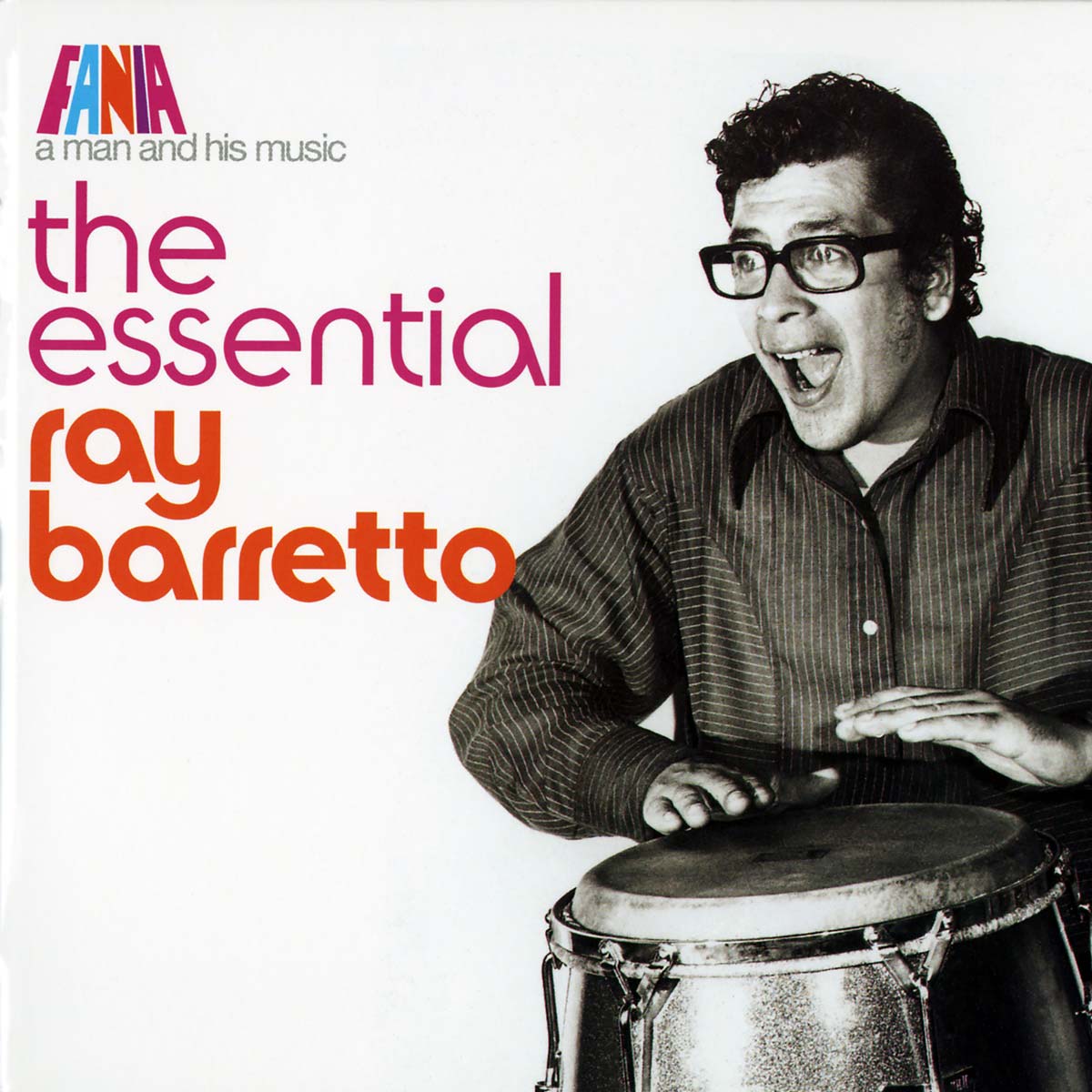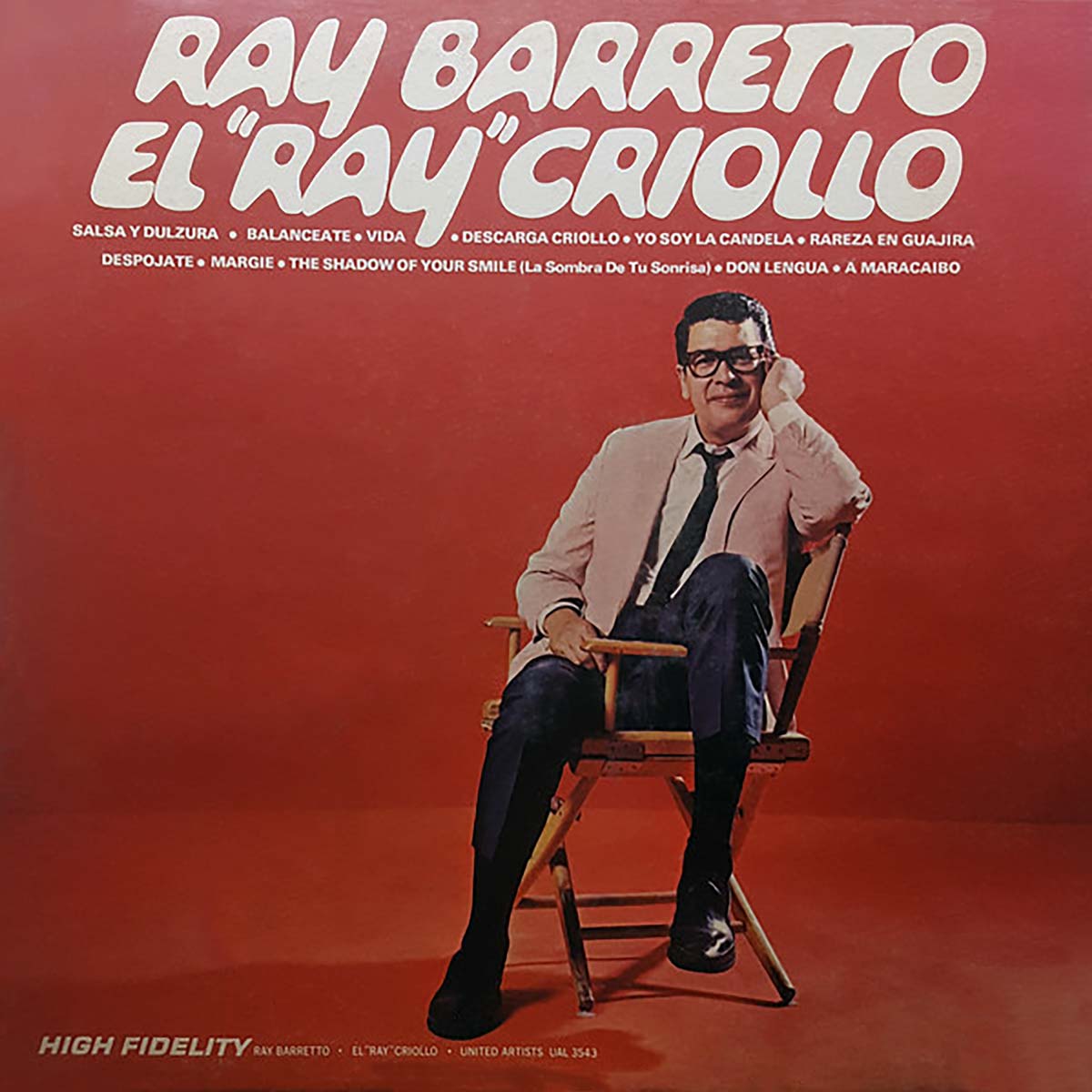
When Ray Barretto released El “Ray” Criollo (“The Creole King” in pun form) in 1966, he was a few frustrating years past his first big hit, Charanga Moderna’s proto-boogaloo “El Watusi” on Tico Records, and on the cusp of a breakthrough that would send his already respectable career into orbit. He had struggled with what he called the “curse of ‘Watusi,’” uninterested in duplicating a facile formula but besieged by audiences expecting more of the same.
Though Barretto was clearly heading towards the hard brass of the nascent salsa movement, a sound he would fully embrace when he moved to the Fania label in 1967, he had yet to totally discard the strings and flutes of charanga. This crossover from strings to brass can be heard at its best on tunes like “Margie,” “Salsa y Dulzura,” and in the clever orchestration of “Balanceate” (Louie Ramirez’s “Balanceate Mujer”). On other tracks like the storming “Descarga Criolla,” the strings seem superfluous, and by the late ’60s, heavily orchestrated ballads like “Shadow of Your Smile” and “Vida” would be completely discarded in favor of the harder new style.
This album holds notable examples of the early usage of the term “salsa” to describe music, as in “Salsa y Dulzura,” when the piano solo is introduced with “linda melodía… con salsa” (“beautiful melody…with salsa”) and in vocalist Willie Garcia’s opening exclamation of “Más salsa!” in “Descarga Criolla.” Within a year, Garcia would be replaced by Adalberto Santiago, considered by many to be Barretto’s finest vocal counterpart. Though a talented singer, Garcia’s greatest notoriety would ultimately result from his marriage to La Lupe. This remastering is the original version of the United Artists–issued album (two tracks, “Vida” and “Balanceate Mujer,” were left off West Side Latino’s 1975 reissue). Original liner notes by Ray Barretto I’d like to talk a little about this album, and the men on it. At the end of a recent ten-day engagement in Maracaibo, Venezuela, we were told that we had won the Momo de Oro, the trophy symbolic of the “God of Carnaval,” as the “triumphant visiting orchestra.”
This was a moment of great pride and satisfaction for me, not only for receiving the honor, but in knowing that through teamwork, a job had been well done. What about this team? Well, let me say that it is the greatest group of guys I’ve ever worked with—a wonderful blend of youth with experience, and most important of all, a band loaded with talent! August of 1966 will mark my fifth year as a leader, and this LP is the tenth under my direction. These years have given me my share of success and of disappointments too, but I can tell you this; what happened in Maracaibo, and what’s going to happen as long as this talent stays together, makes it worth every slap on the conga. And now, listen to the fellows I’m talking about: Mike Dante and Barry Finclair on violins; Roberto Rodriguez from Cuba on trumpet; Joe Wohletz from Puerto Rico on valve trombone; Edy Martinez from Colombia on piano; Ore Vilató from Cuba on timbales; Carlos Castillo from Puerto Rico on bass; and our young Cuban-born vocalist, Willie Garcia.
Their performances will make you want to remember their names.
Thank you for your attention. Sincerely, Ray Barretto


